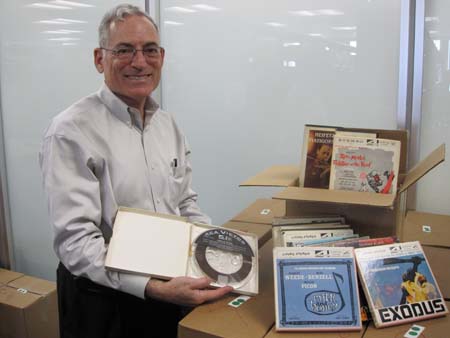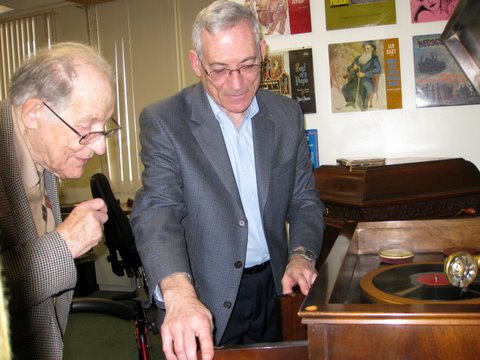Does this man look happy?

Reel-to-reel tapes from the Jack Saul Collection
“It’s like my birthday and Channukah all rolled into one,” says an excited Nathan Tinanoff as he begins upacking some of the 730 boxes of recordings that arrived at FAU Libraries from Cleveland on Sept. 11, 2009.
